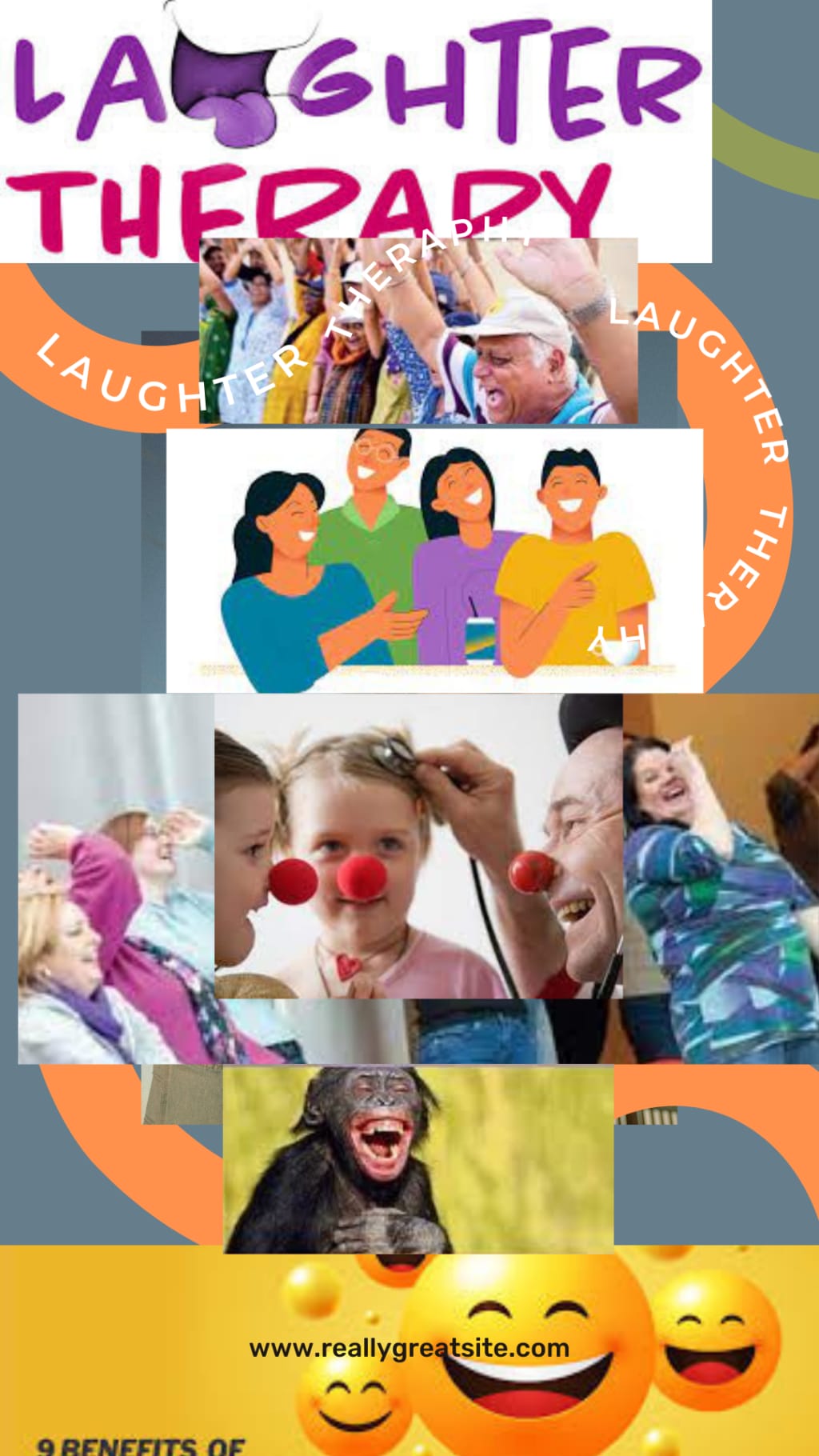Laughter Therapy
Decrease Stress, Fatigue, Blood Pressure & Spread Happiness With Smile & Laughter Therapy ........

The Healing Power of Laughter Therapy: A Comprehensive Exploration
Laughter has been called the best medicine, and for a good reason. Its therapeutic benefits have been recognized for centuries, and in recent years, laughter therapy has emerged as a prominent and evidence-based approach to improving mental and physical well-being. In this article, we will delve into the world of laughter therapy, exploring its origins, mechanisms, benefits, and applications in modern healthcare settings.
Origins and Evolution of Laughter Therapy:
The roots of laughter therapy can be traced back to ancient cultures, where laughter was considered a form of healing and spiritual purification. From Ancient Greece's Temple of Healing to the Eastern traditions of laughter yoga, numerous civilizations acknowledged the therapeutic effects of laughter. However, it wasn't until the 20th century that laughter therapy gained momentum as a formalized therapeutic technique.
Dr. William F. Fry, a pioneer in the field of gerontology (the study of laughter), extensively researched the physiological effects of laughter in the 1960s. His studies laid the foundation for the scientific understanding of laughter therapy. The modern iteration of laughter therapy is often attributed to Dr. Madan Kataria, who founded Laughter Yoga in 1995, blending laughter exercises with yoga-inspired breathing techniques.
Mechanisms of Laughter Therapy:
Laughter therapy operates on several interconnected mechanisms that facilitate its healing effects. When we laugh, our brain releases endorphins, often referred to as "feel-good" chemicals, reducing stress and promoting a positive emotional state. Additionally, laughter increases the production of natural killer cells, T-cells, and other immune system components, bolstering our resistance to illnesses.
Moreover, laughter triggers the relaxation response, leading to decreased muscle tension, reduced heart rate, and an overall sense of well-being. The act of laughing also oxygenates the body, enhancing blood flow and promoting cellular health. These mechanisms collectively contribute to a host of physical, psychological, and social benefits.
Stress Reduction: Laughter acts as a natural stress reliever, reducing the levels of stress hormones like cortisol and promoting relaxation. Regular laughter sessions can help individuals cope with stress and anxiety more effectively.
Improved Mood: The release of endorphins during laughter stimulates feelings of joy and happiness, combating depression and elevating overall mood.
Enhanced Immune System: Laughter's positive impact on the immune system strengthens the body's defense against infections and illnesses.Pain Management: Laughter triggers the release of natural painkillers, providing temporary relief from physical discomfort and chronic pain conditions.
Cardiovascular Health: The relaxation and blood flow-enhancing properties of laughter contribute to improved cardiovascular health and reduced risk of heart disease.Social Connection: Laughter is a social bonding tool, fostering connections and enhancing interpersonal relationships. Laughter therapy in group settings can create a sense of community and support.
Applications of Laughter Therapy:
Laughter therapy finds applications in various settings, ranging from healthcare institutions to corporate offices. In hospitals and rehabilitation centers, laughter therapy is used as a complementary approach to conventional treatments, aiding in the recovery process and boosting patients' morale.
In schools and educational settings, laughter therapy techniques are incorporated to reduce academic stress and create a positive learning environment. Businesses are also embracing laughter therapy as a wellness initiative, promoting employee well-being and team building.
Conclusion:
Laughter therapy is a powerful and accessible tool for improving mental, emotional, and physical health. Its ancient origins have evolved into a modern, evidence-based approach to healing and well-being. As laughter continues to prove its therapeutic value, integrating laughter therapy into various aspects of life could pave the way for a happier, healthier, and more connected society. So, let's embrace the joy of laughter and reap its boundless benefits for our mind, body, and soul.






Comments
There are no comments for this story
Be the first to respond and start the conversation.